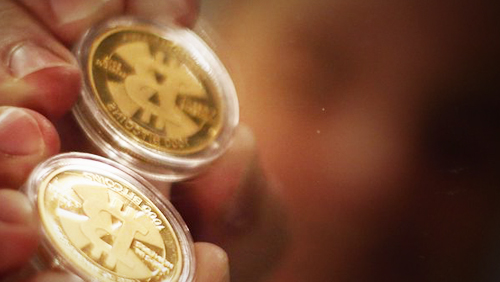 One of the best things about the gaming and gambling industry is its insatiable quest for the next big thing – from the early adoption of mobile back in the 1990s to dipping a toe in the waters of social gaming, so it comes as no great surprise that one of the big talking points of the moment is bitcoin.
One of the best things about the gaming and gambling industry is its insatiable quest for the next big thing – from the early adoption of mobile back in the 1990s to dipping a toe in the waters of social gaming, so it comes as no great surprise that one of the big talking points of the moment is bitcoin.
Having spent the last couple of years exploring the phenomenon of social and virtual currency and its applicability to gambling, and having come to no firm conclusion, we have now turned our attention to another new form of currency – bitcoin (BTC or XBT).
It is hardly surprising given the hype generated by recent stories such as Satoshi dice, one of the first bitcoin gambling sites, being sold for a reputed $11.5m, and players like ‘Nakowa’ turning a bad day into a good one with a bitcoin equivalent to win $1.3m.
The last year has seen a huge surge in all things bitcoin. From online stores offering everything from top of the range electronics to Amazon Vouchers, to pizza, a Canadian coffee shop launching the first ever BTC ATM; and Africa’s cutting edge M-Pesa platform reportedly looking at adding BTC as a currency – and of course gambling – from sports betting to casino, poker, dice and games.
Throw into this heady mix the results of a recent anonymous survey of bitcoin gambling sites, which indicated that 4 out of 15 respondents were averaging profits of between 101 to 250 Bitcoin per month, and the top two were generating average monthly profits of between 1,000 and 5,000 Bitcoin – a ‘real ‘cash equivalent of approximately $122,000 USD and $610,000 per month. It may also be worth noting that whilst only 15 responded, the survey was sent to 60 bitcoin sites in all, suggesting that he figures indicated provide only a ‘modest’ insight into the overall market.
With the estimated value of BTC in circulation at the end of August 2013 exceeding $1.5 billion it is small wonder that the gambling industry is interested.
So for the uninitiated – what is it and why all the fuss?
Bitcoin is a digital currency. This means that it is only available and used in the digital world – in simple terms its cash for the internet, and operates in the same way as ordinary cash, other than the fact that it has no physical form.
What was once the preserve of the techie-geek world has become main-stream. Anyone can use BTC. The first step is to download a digital wallet from bitcoin.org. Next go to an exchange such as Mt GoX, Bitbargain or Coinbase and buy, using the comfort of more conventional payment methods such as PayPal. At time of writing 1 BTC = £220.00 (or $360.00).
Once you have your bitcoins you can spend them just like any other currency.
It would seem then, given that BTC is just another currency, with no barrier to size of transaction or processing fees and no risk of chargebacks, that the gambling industry is missing a trick here – until we look at the finer details of exactly how BTC works.
Despite Germany defining it as ‘private money’, and US federal judge Amos Mazzant declaring, “Bitcoin is a currency or form of money” the currency remains unregulated and ungovernable. BTC is a decentralised peer to peer currency. This means no-one owns it, is responsible for it, and is essentially regulated by the growing global network of bitcoin users. All transactions are conducted online and are anonymous. No audit trail, no checks, no balances, no proof of ownership – Bitcoin is a money launderer’s dream.
As such BTC fails to support two of the core requirements of gambling regulation – player verification including financial due diligence and keeping gambling free of crime, more commonly associated with anti-money laundering regulations.
The irony is that whilst BTC ticks all of the right boxes commercially, it ticks very few from a regulatory perspective and in short, it would be incredibly difficult, if not impossible, for a regulated gambling operator to both accept bitcoin and meet its regulatory and legal obligations. Hardly surprising then that of all the BTC gambling sites researched only one is licensed and regulated, and that in Costa Rica.
The increased profile of BTC, and its links to criminal, whether it’s Ponzi investor schemes, an FBI drugs bust on Silk Road, the dark web’s narcotics shopping mall, to the Australian teenage entrepreneur who claimed hackers stole over $1.1m BTC from him, will undoubtedly result in attempts to bring it under control.
Until this happens however, bitcoin, in its present form remains an elusive dream for the regulated gambling sector.
Christina Thakor-Rankin is Principal Consultant at 1710 Gaming, working with start-ups, evolving and established operators, regulators and industry groups internationally. www.1710gaming.com If you wish to submit your own editorial please contact Bill Beatty.